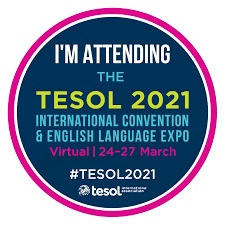
Winter Edition
![]()
Blast
from Past:
Interview of
Barbara
Wallace
Blast
from Past:
Report from
Early Stages
of Arthur
Levine's
TC
Restructuring
Reprise
KATESOL
2006:
Kathy Escamilla
Keynote
Reprise:
Report from
the 1st ever
TESOL Peace
Forum
Sociocultural
Study of
Rock-Picture
Writing
Decision-Making
Skills and
Self-Efficacy
SEE INAUGURAL
EDITION FROM
SUMMER 2020
editor@
Information:
multilingual
adaptive.net
![]()

Reprint from ESL MiniConference:
Inside Report from TESOL's 2003 Peace Forum Initiative
Dr. Kay Mussell, Dean of the College of Arts and
Sciences, American University, welcomed participants
to the peace forum at the opening ceremony in the
Kay Spiritual Life Center Auditorium.
Dr. Kyazze spoke about peace requiring an understanding
among cultures, the need to empower women and minorities,
and the need to overcome disease and poverty.
There were three concurrent workshops in the morning
and three in the afternoon session. In the morning, Alison
Milofky, a program officer in the U.S. Institute for Peace's
Education Program for secondary education (and manager of
the National Peace Essay Contest), invited participants
to explore how to teach peace education and provide a global
context in the classroom, in her workshop, "Engaging ESL
Students in Global Learning." In Alison Milofsky's session,
teachers discussed strategies for talking with students about
war and terrorism and helping students understand the connection
between their lives and world events. Together with those
at her workshop, she examined how to involve the entire
school community in creating a "culture of peace" through
social action.
The other morning session, "In the Aftermath of Terrorism: A
Young Person Asks, 'Am I Safe?'," by Heidi Taylor, Curriculum
Associate for the American Red Cross Headquarters, was attended
by an overflow, standing-room only crowd. In this workshop,
participants learned about empowering young people to prepare
for and cope with disasters using the American Red Cross's
"Facing Fear: Helping Young People Deal with Terrorism and
Other Tragic Events" curriculum for grades K-2, 3-5, 6-8 and
9-12.
At lunch there were animated conversations at every table,
as forum-goers touched base with colleagues and met new
friends. The majority of those at the TESOL Forum were
from the greater D.C. area, including Virginia and Maryland
schools, but there were also a number of teachers from
New York City and even farther away.
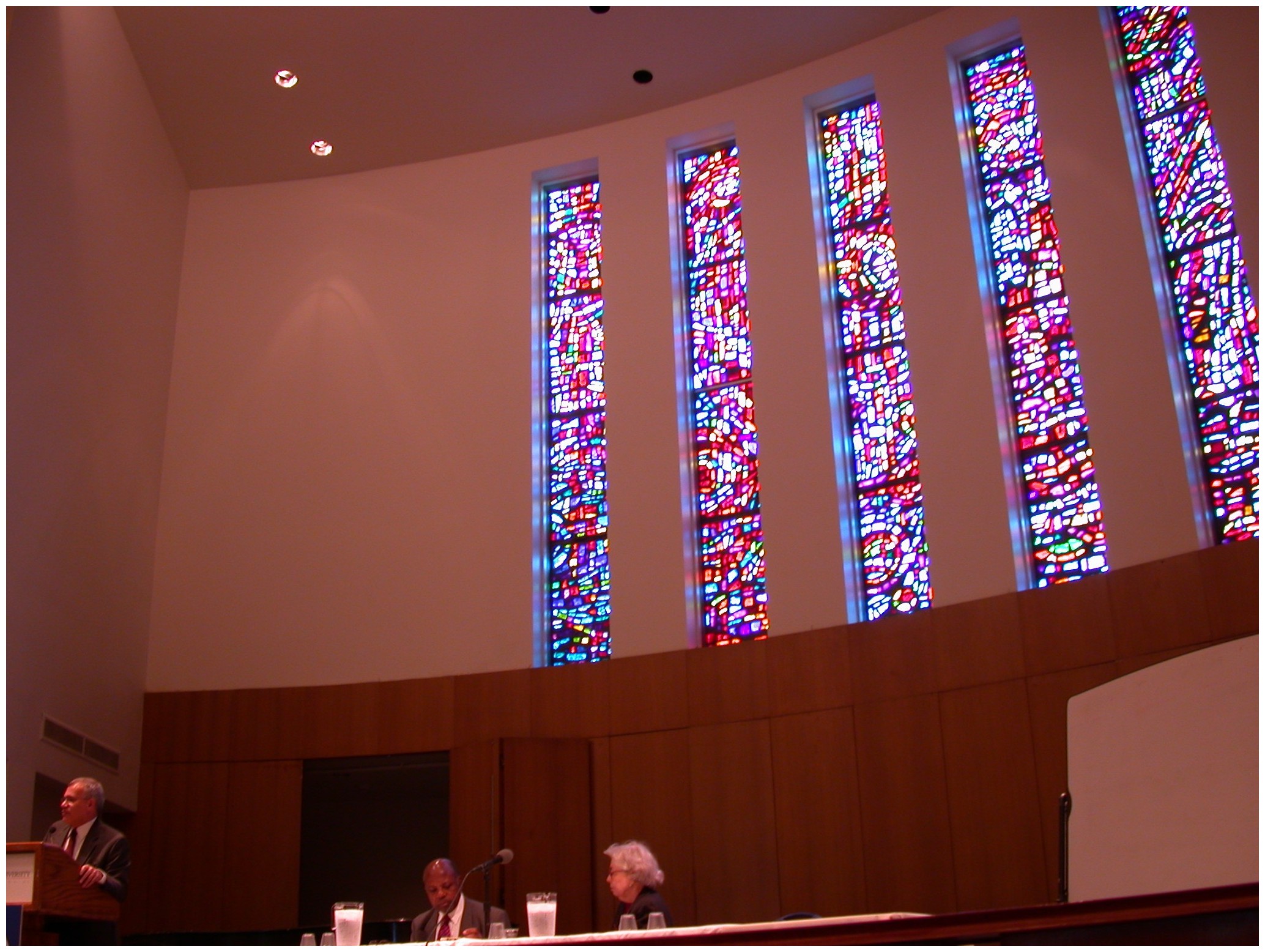 On Friday, October 17, 2003, more than 130
educators, mostly from the greater Washington,
D.C., area, participated in an all-day "TESOL
Forum on Teachers Building a Culture of Peace:
Classroom Responses to War and Terrorism,"
hosted by American University. In his opening
remarks, TESOL Executive Director Charles S.
Amorosino Jr. reported that the organization was
very pleased with the number of participants,
which far exceeded the 110 originally anticipated.
Registrations were closed a full week ahead of
the event because all six workshops were booked
to capacity.
On Friday, October 17, 2003, more than 130
educators, mostly from the greater Washington,
D.C., area, participated in an all-day "TESOL
Forum on Teachers Building a Culture of Peace:
Classroom Responses to War and Terrorism,"
hosted by American University. In his opening
remarks, TESOL Executive Director Charles S.
Amorosino Jr. reported that the organization was
very pleased with the number of participants,
which far exceeded the 110 originally anticipated.
Registrations were closed a full week ahead of
the event because all six workshops were booked
to capacity.
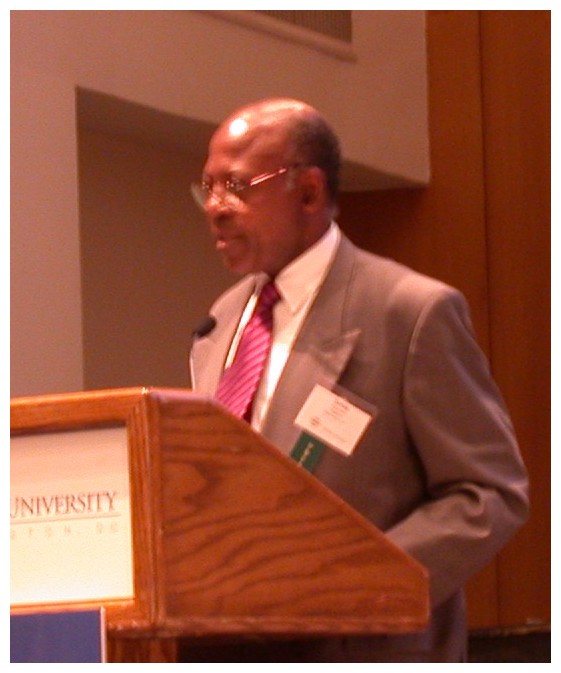 Then, there
were plenary addresses from Dr. Jones Kyazze,
Director of the New York Office of the United Nations
Educational, Scientific and Cultural Organization
(UNESCO), and Dr. Betty Reardon, Founding Director
of the Peace Education Center at Teachers College,
Columbia University.
Then, there
were plenary addresses from Dr. Jones Kyazze,
Director of the New York Office of the United Nations
Educational, Scientific and Cultural Organization
(UNESCO), and Dr. Betty Reardon, Founding Director
of the Peace Education Center at Teachers College,
Columbia University.
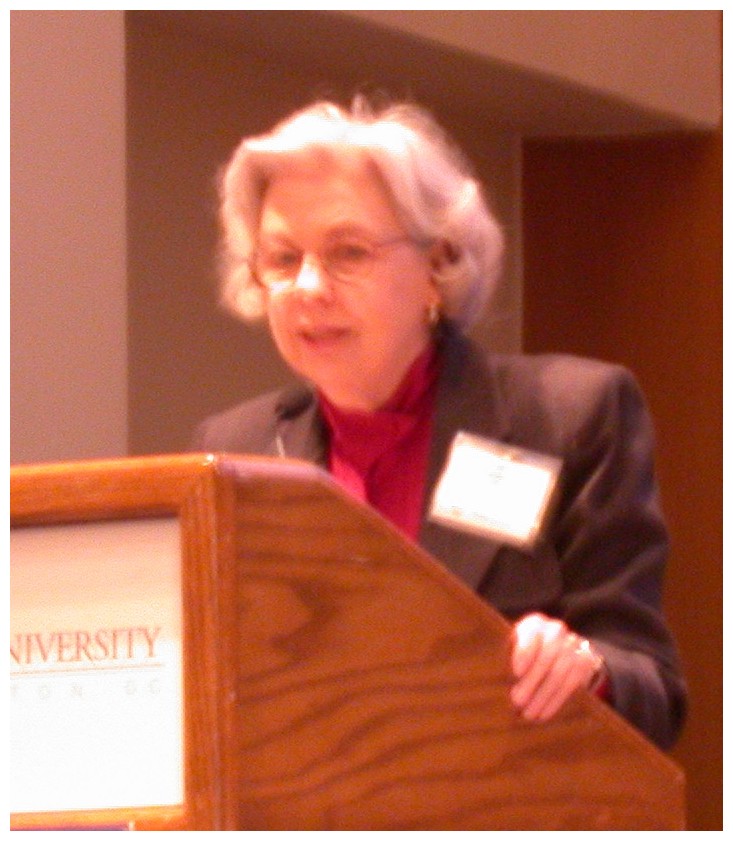 Dr. Reardon
outlined a model for incorporating peace education in
curriculum, emphasizing the need for learning activities
in the realm of what she terms "civil disputation," ways
of resolving differences through conversation. Dr. Reardon
also noted that, largely due to the work of ESL/EFL teachers
around the world for the past half century, America has
attracted new generations of visitors and immigrants who
now enrich our culture with their diverse perspectives.
Dr. Reardon
outlined a model for incorporating peace education in
curriculum, emphasizing the need for learning activities
in the realm of what she terms "civil disputation," ways
of resolving differences through conversation. Dr. Reardon
also noted that, largely due to the work of ESL/EFL teachers
around the world for the past half century, America has
attracted new generations of visitors and immigrants who
now enrich our culture with their diverse perspectives.
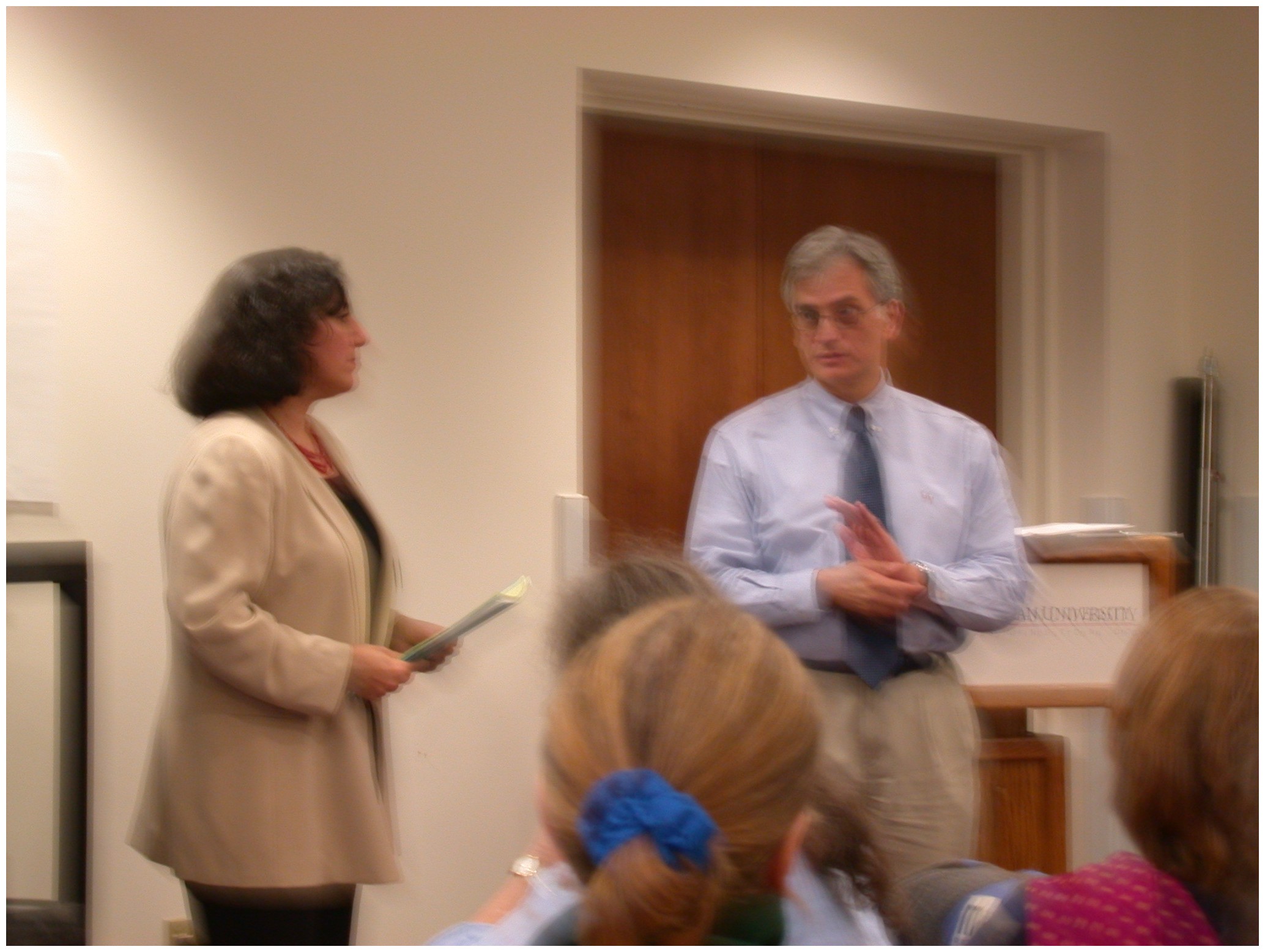 Another morning workshop, "Towards a More Balanced View
of Arabs and Muslims," facilitated by Richard Seikaly, President
of Envisions, and Zeina Azzam Seikaly, Outreach Coordinator at
the Center for Contemporary Arab Studies, Georgetown University,
gave participants an opportunity to reflect on our own
misconceptions about Islam and the Arab world. The Seikalys
started their session with a quiz for us to answer in
consultation with others at each table. In discussing
these answers, it became very clear that the term "Arab"
refers to speakers of the Arabic language, while the term
"Muslim" refers to believers in Islam. There are about
300 million Arabs in the world, while there are about 1.2
billion Muslims. Another important concept covered in
this workshop had to do with the core similarities among
Judaism, Christianity and Islam. Perhaps the most powerful
experience during this 90-minute workshop was the viewing
of a short film, "In My Own Skin," where five young Arab-American
women are interviewed in the months following September 11, 2001,
and share feelings and insights that go beyond typical
stereotypes one may have regarding this cultural group.
Another morning workshop, "Towards a More Balanced View
of Arabs and Muslims," facilitated by Richard Seikaly, President
of Envisions, and Zeina Azzam Seikaly, Outreach Coordinator at
the Center for Contemporary Arab Studies, Georgetown University,
gave participants an opportunity to reflect on our own
misconceptions about Islam and the Arab world. The Seikalys
started their session with a quiz for us to answer in
consultation with others at each table. In discussing
these answers, it became very clear that the term "Arab"
refers to speakers of the Arabic language, while the term
"Muslim" refers to believers in Islam. There are about
300 million Arabs in the world, while there are about 1.2
billion Muslims. Another important concept covered in
this workshop had to do with the core similarities among
Judaism, Christianity and Islam. Perhaps the most powerful
experience during this 90-minute workshop was the viewing
of a short film, "In My Own Skin," where five young Arab-American
women are interviewed in the months following September 11, 2001,
and share feelings and insights that go beyond typical
stereotypes one may have regarding this cultural group.
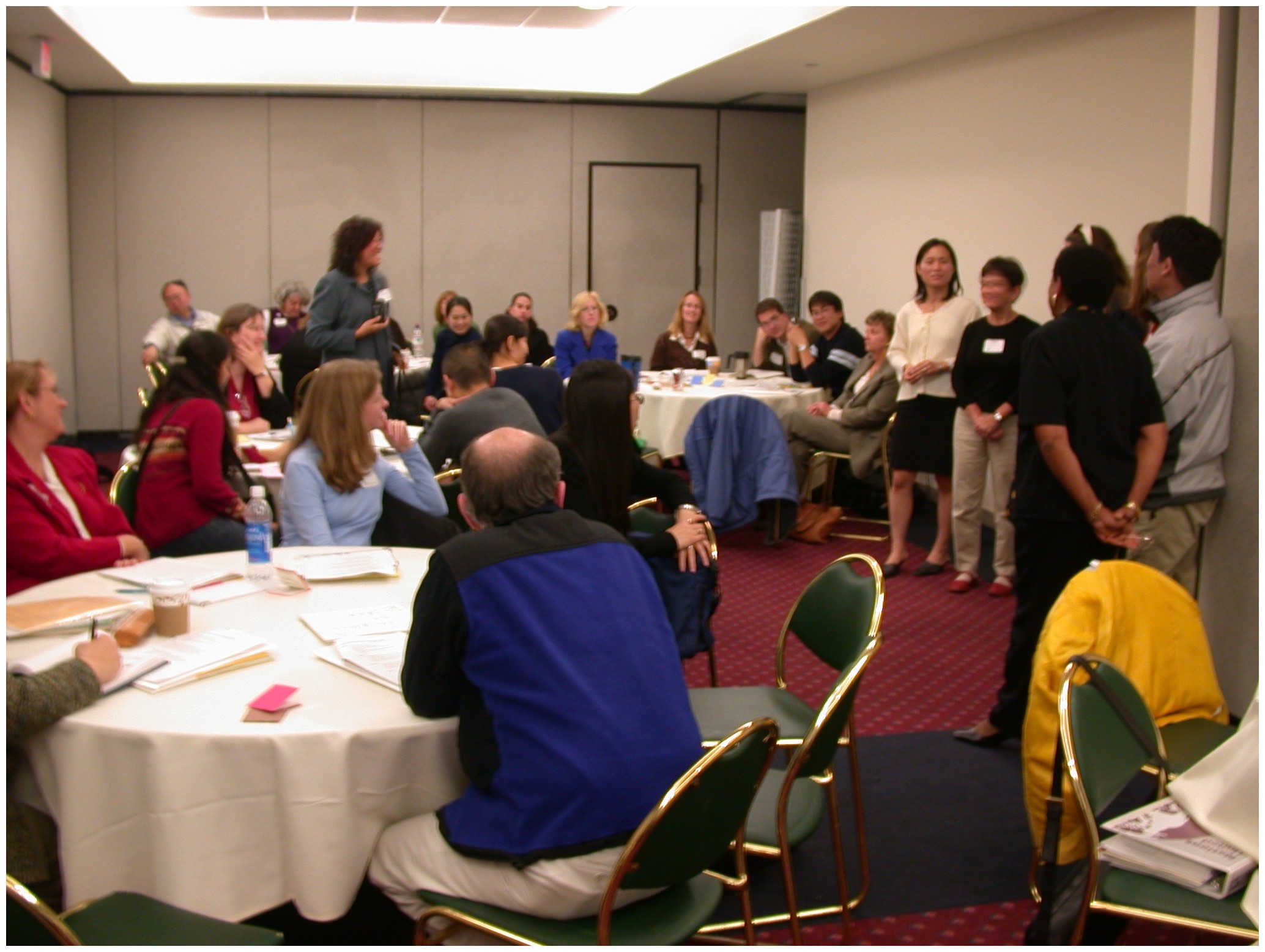 The afternoon workshops included mine, "Encouraging Civil
Discourse with Logical Conversation
The afternoon workshops included mine, "Encouraging Civil
Discourse with Logical Conversation
Another afternoon session, "Students as Humanitarians: Integrating Learning and Acting Globally," by Erin Tunney, Program Associate, Interaction, American Council for Voluntary International Action, gave participants a chance to learn about humanitarian organizations working with children around the world and how to bring this work into ones own classroom, building empathy and connections to other parts of the world with ones students. Erin Tunney also helped teachers to explore how their classrooms can become involved in humanitarian work and how they can integrate such projects into various curricular activities.
Julia Morelli, an administrative faculty member at George Mason University and President of Holistic Solutions, Inc., and Deirdre Ritchie, of the Northern Virginia Mediation Services, presented the other afternoon workshop, "What is a 'Culture of Peace'--and How Do We Get There?" Together with participants, they examined key issues involving the development of a "culture of peace" in the classroom, including what a culture of peace means in the context of a classroom setting, how the teacher's own perceptions and culture affect teaching about conflict events involving culture and how to resist, and help students resist, reacting to individuals as representatives of a cultural group.
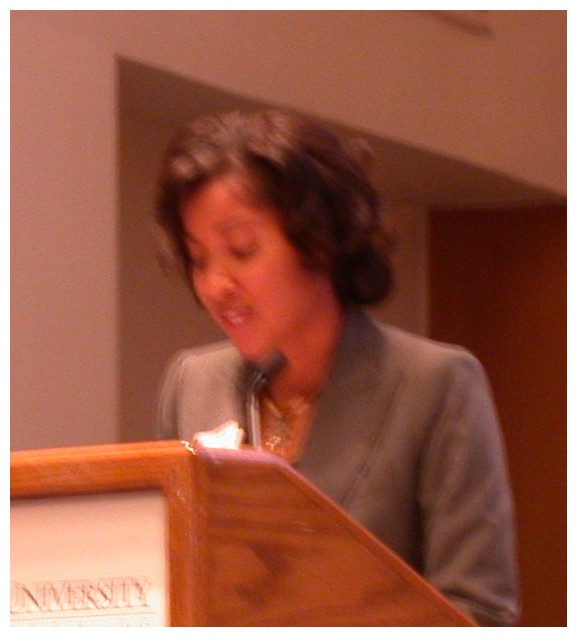 Laura Bryant, Coordinator of Member Relations for TESOL, envisioned
and organized this first-ever TESOL Peace Forum. Other TESOL officers,
including Executive Director Charles S. Amorosino Jr., Education Programs
Director Lou Leto, Conference Services Director Bart Ecker, Member Services
Director Pam Williams and Career Services Coordinator Alison O'Neill, were
continuously on the move, ensuring the smooth functioning of the entire event.
It was a great pleasure to meet these individuals, and a real learning
experience to see how they supported the presenters and demonstrated
a sincere interest in the quality of each session.
Laura Bryant, Coordinator of Member Relations for TESOL, envisioned
and organized this first-ever TESOL Peace Forum. Other TESOL officers,
including Executive Director Charles S. Amorosino Jr., Education Programs
Director Lou Leto, Conference Services Director Bart Ecker, Member Services
Director Pam Williams and Career Services Coordinator Alison O'Neill, were
continuously on the move, ensuring the smooth functioning of the entire event.
It was a great pleasure to meet these individuals, and a real learning
experience to see how they supported the presenters and demonstrated
a sincere interest in the quality of each session.
I represented Fort Hays State University at the TESOL Peace Forum, and my trip was paid for with Professional Development funding from the FHSU Provost's Office, additional funding from the FHSU Special Education/ESOL Department where I am a faculty member, and a generous stipend from TESOL. I deeply appreciated the invitation to present on logical conversation activities, which my colleagues from teaching jobs in Japan, Ecuador, New York and Kansas will likely remember me always promoting. I personally had a great time at the TESOL Peace Forum and gained new appreciation for the peace education movement.
Please note that descriptions of the four workshops I was unable to attend were drawn primarily from the TESOL brochure for this event, still available for download.
Original report by Robb Scott appeared in November 2003 edition of ESL MiniConference Online
editor@multilingualadaptive.net
2021 The Multilingual Adaptive Systems Newsletter
